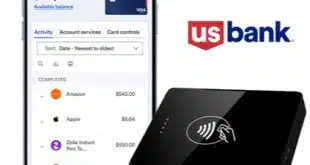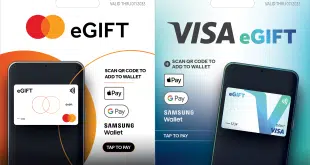A U.S. House of Representatives committee released a report this week blasting the Federal Deposit Insurance Corp. for its role in Operation Choke Point, a federal-government effort to deny payment-processing services to merchants intent on defrauding consumers. The report is one more nail in what appears to be a coffin being built for the controversial program.
The 21-page report from the House Committee on Oversight and Government Reform comes in the wake of hearings in which some lawmakers said Operation Choke Point was denying payment processing and other financial services to merchants whose industries are legal but disfavored by the Obama Administration, including payday lenders and gun dealers. The new report, a follow-up to a preliminary report the panel released in May, assesses how the FDIC assisted the U.S. Department of Justice, the architect of Operation Choke Point, in assuring that banks “got the message” that serving “disfavored business lines would incur enormous regulatory risk.”
Much of the report deals with the fallout from an article that appeared in a 2011 quarterly FDIC publication for bank examiners. The article advised examiners on how to handle risks presented to the 4,500-plus financial institutions that the FDIC supervises by 30 types of merchants. In addition to naming payday lenders and ammunition sellers, a list in the article also mentioned dating services, pornography sellers, money-transfer networks, telemarketers, distributors of racist materials, online gambling sites, and other merchants.
The problem with the list was that the FDIC never spelled out its rationale for including the particular types merchants, says the report. The list, however, worked its way into various FDIC regional offices’ memorandums of understanding and consent orders with banks as “prohibited businesses,” according to the report. At least two private companies that develop training and compliance materials for banks incorporated the list into their software.
“The experience of firearms and ammunitions dealers—one of the most heavily regulated businesses in the United States—is a testament to the destructive and unacceptable impact of Operation Choke Point,” says the report, which cites the experiences of three dealers. One, a small Maryland seller called TomKat Ammunition, had a license from the federal Bureau of Alcohol, Tobacco, Firearms and Explosives, two Maryland licenses, and a local business license. But over the past year, the report says, one bank “refused to provide payment-processing services due to their ‘industry.’ A large online payment processor informed TomKat that they ‘could not offer that service due to [their] line of work.’ Another credit card processor stated it would no longer allow businesses to process gun or ammunition purchases.”
In South Carolina, a gun and pawn shop lost its longstanding checking accounts “after the company was deemed a ‘prohibited business type.’” And a Wisconsin gun seller opened an account at a local credit union only to have it closed the next day when the credit union informed the company that “they do not service companies that deal in guns,” according to the report.
“In all three of these cases, the financial institutions and payment processors made no reference to the merchants’ creditworthiness, individual risk profile, or due-diligence findings,” the report says. “The sole basis for the terminations is their participation in an industry deemed ‘high risk’ by federal regulators.”
The FDIC issued a statement in the wake of the report saying “it is the FDIC’s policy that insured institutions that properly manage customer relationships are neither prohibited nor discouraged from providing services to any customer operating in compliance with applicable law. The FDIC has reiterated this policy to our bank supervisors and we encourage banks to report to FDIC management, the ombudsmen, or the Inspector General if they feel this policy is not being followed.” The statement also says “the FDIC has a responsibility to cooperate with other government agencies and to ensure that the banks we supervise are adhering to laws, including those governing anti-money laundering and terrorist financing.”
The House panel said the government is starting to change its tune. “Recognizing the irreparable harm to legal and legitimate industries, even fellow regulators have taken the extraordinary step of criticizing the impacts of Operation Choke Point,” the report says. It cites a November speech by a senior U.S. Treasury Department official who warned of “de-risking,” which occurs when banks restrict business relationships simply to avoid perceived regulatory risk, rather than in response to actual risk of illicit activity.
The Electronic Transactions Association, the national merchant-acquiring trade group, noted last month that the DoJ and the FDIC announced that were launching an investigation “to determine whether Operation Choke Point was actually aimed at reducing fraud or if the goal was to drive politically unpopular businesses out of the banking system.” The Washington, D.C.-based ETA, a critic of Operation Choke Point, said it hopes that the investigation and a House bill with Republican and Democratic co-sponsors to correct some of the identified problems “finally marks the end of Operation Choke Point.”





